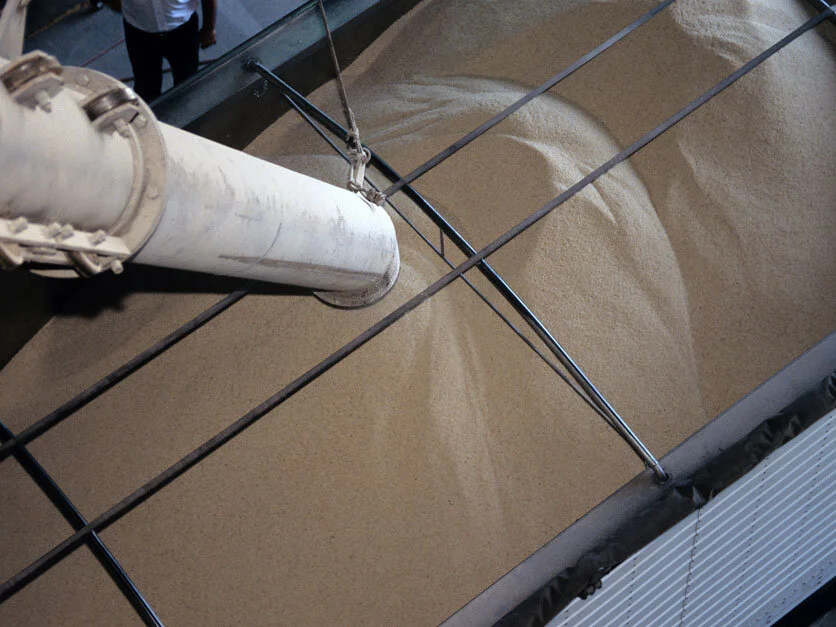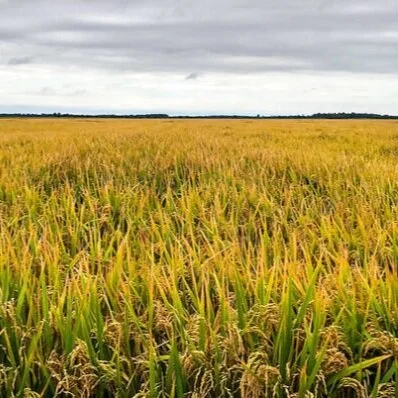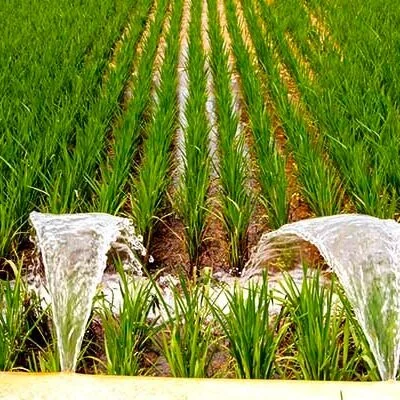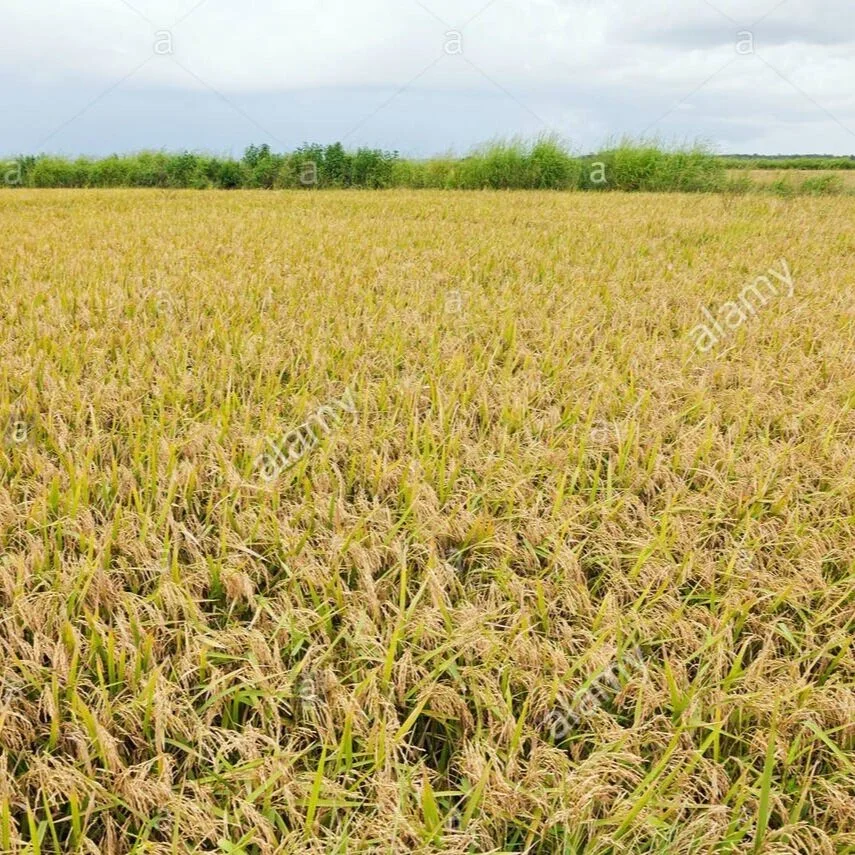As interest in U.S.-grown rice amongst Chinese importers rises, USA Rice commissioned a consumer research study to help refine marketing targets, gauge attitudes, and develop general market intelligence on which to base a strategic approach to the consumer market.
Read MoreUniversity of Arkansas System Division of Agriculture entomologists are seeking an emergency exemption to allow for the use of Intrepid to help control armyworms that threaten the state’s 1.24 million acres of rice.
“This is the biggest outbreak of fall armyworm situation that I’ve ever seen in my career,” Gus Lorenz, extension entomologist for the Division of Agriculture, said Wednesday. “They’re in pastures, rice, soybeans, grain sorghum. It’s epic.”
Read MoreHow will this year’s weather conditions affect crop production? The Monthly Agricultural Yield Survey conducted by the U.S. Department of Agriculture’s National Agricultural Statistics Service (NASS) will survey U.S. farmers beginning July 30, 2021, regarding yields of the major row crops and hay, as well as hay stocks throughout the growing season across the United States.
Read MoreEarlier this month, the largest anti-communist protest in decades took place here as Cuban citizens begin to fight for their freedom. The protests have been led primarily by backers of the United States and disenfranchised young Cubans in response to major medicine and food shortages and in opposition to the Cuban government’s COVID-19 lockdowns.
The Cuban government responded by jailing protesters and further censoring internet access to “banned content,” including some social media platforms.
Read MoreRice production in southwest Louisiana began in earnest during the early 1880s. The rice industry rapidly increased in the region in the years that followed. From 1896 to 1909, rice acreage in southwest Louisiana expanded from 148,000 to 370,000 acres with average rice yields ranging from a low of 855 pounds per acre in 1896 to a high of 1,642 pounds per acre in 1908. Rice industry leaders in the region recognized the importance of rice to southwest Louisiana and began to take measures to ensure the sustainability of the rice industry.
Read MoreWith their two-year terms ending later this month, the chairs of two USA Rice governing boards handed their gavels to two rising industry leaders.
Kirk Satterfield, a Mississippi rice farmer from Bolivar County, was unanimously elected to serve as the new chair of the USA Rice Farmers Board of Directors and Eric Unkel, a Louisiana rice farmer from Allen Parish, was unanimously elected to serve as the new chair of the USA Rice Council Board of Directors.
Armed thieves are threatening the viability of U.S. rice exports to Haiti, the largest foreign market for U.S. long grain milled rice.
The thieves have stolen 500 metric tons of U.S. rice worth $300,000 over the past three weeks, and U.S. farmers and millers are hoping the government can quell the chaos and crime that has been gripping the country.
The situation has gotten so bad that the future of U.S. rice exports to Haiti — roughly 500,000 metric tons per year — is uncertain as exporters and the companies that provide insurance for shipments to Port-au-Prince weigh the risks of continuing to do business with importers there.
Read MoreThe outlook for 2021/22 U.S. rice this month is for slightly larger supplies, lower domestic use, higher exports, and larger ending stocks. Supplies are raised slightly as increased beginning stocks and imports more than offset lower production.
Beginning stocks are higher, primarily due to lower estimates for domestic use and residual for 2020/21, as implied by the latest NASS Rice Stocks report. Domestic use is also reduced in 2021/22 by 3.0 million cwt to 153.0 million, although still a record.
Read MoreWith their two-year terms ending later this month, the chairs of two USA Rice governing boards handed their gavels to two rising industry leaders. Kirk Satterfield, a Mississippi rice farmer from Bolivar County, was unanimously elected to serve as the new chair of the USA Rice Farmers Board of Directors and Eric Unkel, a Louisiana rice farmer from Allen Parish, was unanimously elected to serve as the new chair of the USA Rice Council Board of Directors.
Chair-elect Satterfield thanked outgoing Chair Nicole Montna Van Vleck of California for her two years of service at the helm of the USA Rice Farmers.
“Nicole’s passion for policy work has helped us all, making sure rice farmers’ best interests were heard, and when the COVID-19 pandemic caused all sorts of issues for our markets, both domestically and internationally, Nicole played a key role to ensure rice farmers’ were included in the Coronavirus Food Assistance Program payments,” said Satterfield. “She guided us through long-needed USDA updates to rice crop insurance, including adding alternate wetting and drying and furrow rice as insurable practices, and she also re-established the Farm Policy Task Force to prepare for the upcoming Farm Bill.”
“We have all benefited from Nicole’s service and dedication to the organization over the past two years,” said Satterfield. “Her tenure as chair could quite possibly could go down as both one of the most difficult and successful during these historic times.”
There also was a change in leadership for the USA Rice Council with Louisiana rice farmer Eric Unkle named the new chair. Unkle recognized his predecessor, Arkansas rice farmer Byron Holmes, for his leadership and commitment to the industry.
“Byron saw consumer behavior changing last year as a result of COVID-19 and though tragic, he knew this was a maybe once-in-a-generation opportunity for U.S.-grown rice, and he was integral in developing a new consumer outreach campaign,” said Unkel. “Through budget challenges, record-setting storms, a global pandemic, and reduced acres – we could always count on Byron’s cool, measured demeanor. He’s always got a smile and a kind word, and that steady leadership helped put the Rice Council on a glide path to rebuild reserves while maintaining excellent programming.”
The USA Rice Farmers Board also elected Texas rice farmer L.G. Raun as vice chair. Each new appointee will serve a two-year term that begins August 1, 2021.
Read MoreUSDA released its’ much-anticipated June Acreage report this week. The most surprising aspect of the report was the lack of change from the March intentions. Likely the report left traders with more questions than answers. In truth, the acreage picture may not begin to clear until August when we get a first look at FSA certified acreage.
Read MoreCongressman Clay Higgins (R-LA) delivered an official letter today to the U.S. State Department’s Acting Assistant Secretary of the Bureau of Democracy, Human Rights, and Labor calling for increased assistance in securing U.S. rice and other food shipments in Haiti. The request follows growing gang-related violence, unrest, and the assassination of Haitian President Jovenel Moïse.
Read MoreMore than 400 rice producers and industry insiders gathered for the first post-pandemic field day at the LSU AgCenter H. Rouse Caffey Rice Research Station on June 30.
Following a virtual field day in 2020, this year’s in-person event featured a field tour highlighting new developments in rice varieties, pest management and growing practices.
Read MoreRice farmers at the recent Horizon Ag Louisiana Field Day had a chance to see firsthand how new PVL03, the latest variety for the Provisia® Rice System, can be used to effectively bring fields infested with weedy rice and resistant grasses back into profitable production.
After the cancellation of last year’s field day due to the COVID-19 pandemic and a season of disruptions, a sizable crowd came together at Richard Farm to hear the latest on the Provisia Rice System and top-performing Horizon Ag Provisia and Clearfield® varieties.
Read MoreUSA Rice staff fanned out across rice-growing regions in southwest Louisiana and Texas to attend industry meetings, meet with members, and participate in field days.
After virtual field days in 2020, rice farmers, consultants, researchers, and rice industry related individuals were excited to be back in person to hear updates on agronomy, sustainability, variety/hybrid breeding, and weed, disease, and insect control.
Read More“Essentially, we found that warmer nights throw the rice plant’s internal clock out of whack,” says Colleen Doherty, an associate professor of biochemistry at North Carolina State University and corresponding author of a paper on the work in the journal PNAS.
“Most people think plants aren’t dynamic, but they are. Plants are constantly regulating their biological processes—gearing up for photosynthesis just before dawn, winding that down in the late afternoon, determining precisely how and where to burn their energy resources. Plants are busy, it’s just difficult to observe all that activity from the outside.”
And what researchers have learned is that the clock responsible for regulating all of that activity gets messed up when the nights get hotter relative to the days.
Read More














